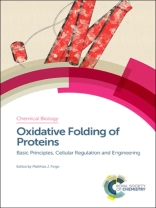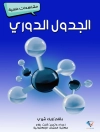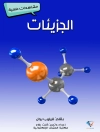The formation of disulphide bonds is probably the most influential modification of proteins. These bonds are unique among post-translational modifications of proteins as they can covalently link cysteine residues far apart in the primary sequence of a protein. This has the potential to convey stability to otherwise marginally stable structures of proteins. However, the reactivity of cysteines comes at a price: the potential to form incorrect disulphide bonds, interfere with folding, or even cause aggregation. An elaborate set of cellular machinery exists to catalyze and guide this process: facilitating bond formation, inhibiting unwanted pairings and scrutinizing the outcomes. Only in recent years has it become clear how intimately connected this cellular machinery is with protein folding helpers, organellar redox balance and cellular homeostasis as a whole.
This book comprehensively covers the basic principles of disulphide bond formation in proteins and describes the enzymes involved in the correct oxidative folding of cysteine-containing proteins. The biotechnological and pharmaceutical relevance of proteins, their variants and synthetic replicates is continuously increasing. Consequently this book is an invaluable resource for protein chemists involved in realted research and production.
Tabla de materias
Section 1: Principles and Analysis of Disulfide Bond Formation; Disulfide Bonds in Protein Folding and Stability; Techniques to Monitor Disulfide Bond Formation and the Reduction Potential of Cysteine-Cystine Couples In vitro and In vivo; Real-time Detection of Thiol Chemistry in Single Proteins; Analysis of Disulfide Bond Formation in Therapeutic Proteins; Section 2: Disulfide Bonds in Peptides and Proteins: Structure, Function and Evolution; Evolutionary Adaptations to Cysteine-rich Peptide Folding; In vitro Refolding of Proteins; Allosteric Disulfide Bonds; Section 3: Oxidative Folding in the Cell; Disulfide Bond Formation and Isomerization in Escherichia coli; Disulfide Bond Formation in Mitochondria; Structural Insights into Disulfide Bond Formation and Protein Quality Control in the Mammalian Endoplasmic Reticulum; Mechanisms of Oxidative Protein Folding and Thiol-dependent Quality Control: Tales of Cysteines and Cystines; Disulfide Bond Formation Downstream of the Endoplasmic Reticulum; Section 4: Oxidative Folding and Cellular/Organism Homeostasis; How Microbes Cope with Oxidative Stress; Disulfide Bond Formation in the Endoplasmic Reticulum; Redox Regulation of Hsp70 Chaperone Function in the Endoplasmic Reticulum; Thioredoxin and Cellular Redox Systems: Beyong Protein Disulfide Bond Reduction; Section 5: Engineering Covalent Linkages in Peptides and Proteins; Stabilization of Peptides and Proteins by Engineered Disulfide Bonds; Genetic Code Expansion Approaches to Introduce Artificial Covalent Bonds into Proteins in Vivo
Sobre el autor
Matthias J. Feige studied biochemistry at the Swiss Federal Institute of Technology (ETH Zurich) and TUM. In 2009, he obtained his Ph D in biochemistry under the supervision of Johannes Buchner at the TUM. As a postdoctoral fellow in the laboratory of Linda Hendershot at the St. Jude Children’s Research Hospital, Memphis, TN, USA, he expanded his research towards cell biology and since 2015 heads the laboratory for cellular protein biochemistry at the TUM. Matthias J Feige’s laboratory aims at understanding how cells control and maintain the integrity of their proteome. He is particularly interested in proteins of the secretory pathway – proteins that are ultimately secreted or localized on the cell surface and allow cells to interact with their environment. Using an interdisciplinary approach from protein biochemistry to cell biology he analyses the machinery and mechanisms that monitor cellular protein biogenesis. By focusing on proteins of immunological and biomedical relevance, he seeks a molecular understanding of fundamental biological processes that at the same time may help in developing new approaches for protein engineering and human therapy.












